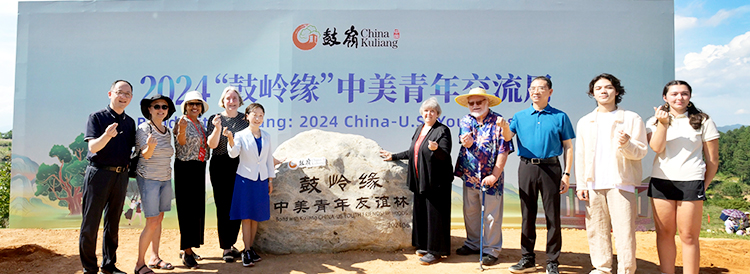

The 5th Fuzhou Jasmine Tea Cultural Festival and the 4th Fuzhou Tea Expo officially opened on September 5. Themed "Chinese Tea, Shared with the World," the event gathered nearly 400 participants, including cross-Strait representatives, intangible cultural heritage inheritors, and leading enterprises from the tea industry.
The opening ceremony featured the release of the Fuzhou Jasmine Tea White Paper (2025), which provides an in-depth overview of the industry's current status and future prospects. It also premiered the documentary Fuzhou Tea Factory — Living up to the Mission, A Century of Heritage, which highlighted the enduring craftsmanship and innovation of Fuzhou tea makers.
Chen Mingwang, secretary of the Party leadership group and director of the Fujian Provincial Department of Agriculture and Rural Affairs, highlighted Fuzhou's pivotal role as a hub on the Maritime Silk Road and as a "World Tea Port." This year's festival spans more than 30,000 square meters, with three theme halls and 10 exhibition zones, bringing together 27 government delegations, over 700 tea companies, and more than 2,000 buyers. More than 10 academic forums and exchange sessions are also being held, creating a multidimensional platform that integrates trade, research, and cultural exchange.
The festival also witnessed the signing of three rounds of major projects with a total investment exceeding 22 billion yuan (about $308.9 million), injecting new momentum into the high-quality development of the tea industry. These projects cover areas such as smart agriculture, deep-processing R&D, and ecological cultivation.
Cross-Strait exchanges were another highlight of the opening day. Lin Zhongle, president of the Cross-Strait Tea Exchanges Association, called for closer cooperation between tea industries across the Taiwan Strait. In the intangible cultural heritage showcase, four national-level inheritors — Fu Tianlong and Wang Dexing for jasmine tea scenting, Wang Wenli for Tieguanyin, and Lin Zhenchuan for Fuding White Tea — shared their craftsmanship which has been passed on for centuries. Artistic performances such as Fragrant Jasmine in Fuzhou and the dance Seeking Fragrance further brought to life the essence of tea culture through art.
In addition, the Fuzhou Agriculture and Rural Affairs Bureau, together with the Fuzhou Culture and Tourism Bureau, jointly released for the first time premium tea-themed cultural tourism routes. These routes link ecological tea mountain tours, heritage workshop experiences, and digital museum study programs, showcasing the integration of the tea industry with cultural tourism and creating new landmarks for tea-inspired travel.
Fuzhou, the birthplace of jasmine tea and a renowned "World Tea Port," is recognized internationally for both its agricultural and cultural significance. In 2014, the Jasmine and Tea Culture System of Fuzhou was designated by the FAO as a Globally Important Agricultural Heritage System (GIAHS), and in 2022, the traditional tea processing techniques and associated social practices in China — including the jasmine tea scenting craft of Fuzhou — were inscribed on UNESCO's Representative List of the Intangible Cultural Heritage of Humanity.
Building on this distinction, Fuzhou continues to celebrate the timeless charm of tea while strengthening its global heritage profile. This festival provides a comprehensive platform for production, trade, innovation, and cultural exchange. With partners from across China and around the world, Fuzhou is sharing the fragrance of Chinese tea globally and fostering the sustainable growth and innovation of Fujian's tea industry.
